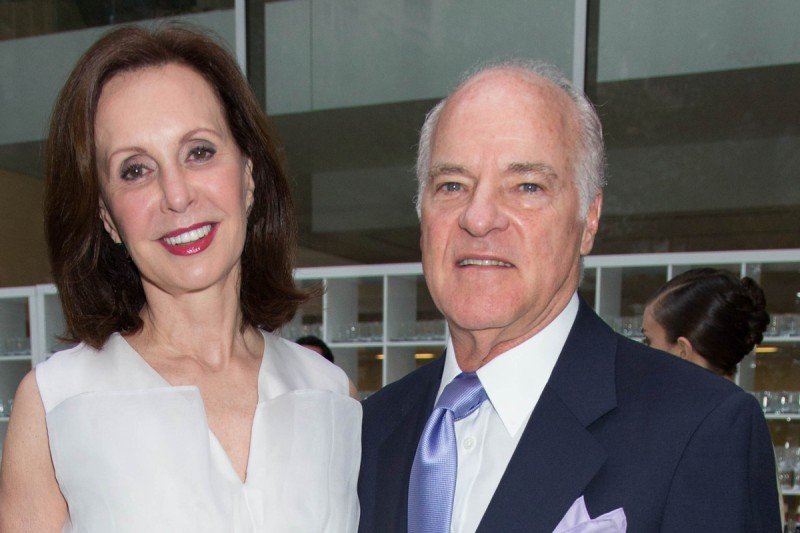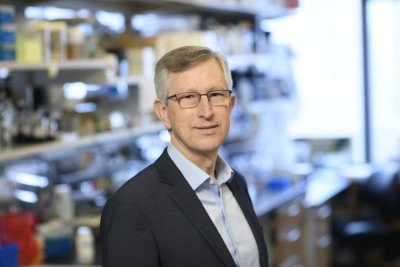
Memorial Sloan Kettering Cancer Center (MSK) today announced the creation of The Marie-Josée and Henry R. Kravis Cancer Ecosystems Project to spur the next revolution of preclinical research, discovery, and treatment. The new initiative, made possible by a generous $100 million gift from The Marie-Josée and Henry R. Kravis Foundation, will bring together teams of researchers from across the institution to explore the many interconnected elements that contribute to the relapse of cancer — the key driver of cancer deaths — guided by a holistic, strategic vision.
Scientific advances over the past decade have transformed the way that cancer is understood and treated by identifying genetic changes associated with the disease. We have also learned that not all cancers have an actionable genetic mutation, and even those that do are affected by a complex web of additional factors. To truly tackle the disease, researchers must look beyond genetics to understand a tumor’s entire ecosystem — including all aspects of the relationship between tumors and the host tissues they inhabit.
“We are profoundly grateful to Marie-Josée and Henry R. Kravis for their generosity, which positions MSK to lead the next generation of advances in cancer research as we tackle the formidable challenge of metastasis,” said Craig B. Thompson, MD, President and CEO of MSK. “The Kravis Cancer Ecosystems Project will benefit countless people with cancer and generations to come with innovative new therapies and treatment options and offer hope where it has never existed before.”

“Over the past decade, MSK has become a leader in cancer genomics and precision medicine, identifying scores of cancer-associated mutations and pioneering therapies that target them,” said Dr. Massagué. “This new initiative seeks to understand cancer within the context of the body, ultimately rewriting what is possible in terms of knowledge, discovery, and breakthrough therapies.”
The Marie-Josée and Henry R. Kravis Cancer Ecosystems Project builds on the Kravis family’s history of generosity — which has provided tremendous value and benefits to MSK, the patients it serves, and the broader science community — and their passion and commitment to advancing the future of cancer research. Mr. and Mrs. Kravis have long recognized that the path to developing new treatments for cancer starts with understanding cancer cells’ biology. In 2005, they made a generous gift to establish The Marie-Josée and Henry R. Kravis Chair in Human Oncology and Pathogenesis at MSK. Charles L. Sawyers, MD, Chair of MSK’s Human Oncology and Pathogenesis Program (HOPP), has been the incumbent of this first Kravis Chair since its inception.
In 2014, The Marie-Josée and Henry R. Kravis Center for Molecular Oncology (CMO) was established with a $100 million gift from The Marie-Josée and Henry R. Kravis Foundation. Now one of the most advanced genome-sequencing programs for cancer in the world, the CMO propelled research on genetic mutations that drive cancer, helping to usher in a new era in the development of personalized cancer therapy.
In 2020, Mr. and Mrs. Kravis provided funds for the establishment of The Marie-Josée Kravis Women in Science Endeavor, an important initiative to support the recruitment and advancement of female scientists. The initiative includes research fellowships, an annual symposium held to mark Women’s History Month, and grants to cover childcare and other expenses in support of working parents. The following year, in 2021, they established The Marie-Josée Kravis Fellowship in Quantitative Biology to provide support to quantitative biologists focusing on high-risk, high-impact cancer research.
“We are honored to be able to continue our support of science and research at MSK through this initiative,” said Marie-Josée Kravis, who also serves as Vice Chair of the MSK Board. “Researchers at MSK, HOPP, and the CMO have already learned so much about cancer at the genetic level. We want to build on this work in order to create greater understanding of cancer’s relationship to the body and yield transformative treatments for people around the world.”
